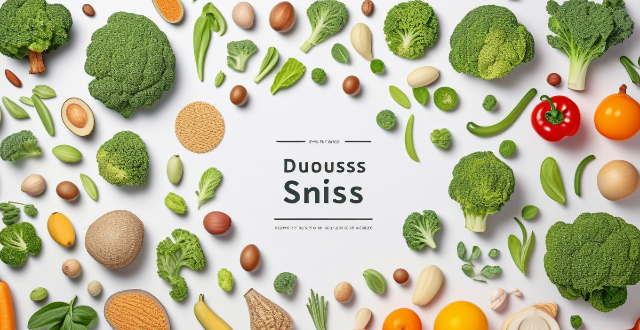The article discusses the potential risks associated with organic and natural foods, such as pesticide residues, microbial contamination, nutrient content, ambiguous terminology, marketing strategies, additives, preservatives, and packaging materials. It emphasizes the importance of consumer awareness and proper regulations to ensure the safety and quality of these products.

Can Organic or Natural Foods Be Less Safe Than Conventionally Produced Foods?
Introduction
The debate over the safety and health benefits of organic versus conventionally produced foods has been ongoing for decades. While many argue that organic foods are safer and more nutritious, there is also a growing concern about the potential risks associated with these products. In this article, we will explore whether organic or natural foods can be less safe than conventionally produced foods.
Potential Risks of Organic Foods
Pesticide Residues
- Organic Pesticides: Although organic farming prohibits the use of synthetic pesticides, it does allow the use of certain natural pesticides. These natural pesticides can still leave residues on crops, which may pose health risks if consumed in large quantities.
- Cross-Contamination: Organic farms often share equipment and resources with conventional farms, leading to potential cross-contamination of pesticides. This can result in organic foods having higher levels of pesticide residues than expected.
Microbial Contamination
- Manure Use: Organic farming often relies on animal manure as a natural fertilizer. However, improper handling and application of manure can lead to microbial contamination, such as E. coli and Salmonella, posing serious health risks to consumers.
- Lack of Antibiotics: Organic livestock production prohibits the use of antibiotics, which are commonly used in conventional farming to prevent diseases. This lack of antibiotics can make organic animals more susceptible to infections, potentially leading to increased microbial contamination in their products.
Nutrient Content
- Soil Quality: Organic farming practices aim to improve soil quality through natural methods, but it takes time for these practices to have an impact. As a result, some organic foods may have lower nutrient content than their conventional counterparts, especially in the early stages of conversion from conventional to organic farming.
- Crop Yields: Organic farming often results in lower crop yields compared to conventional farming due to the absence of synthetic pesticides and fertilizers. This reduced yield can sometimes lead to decreased nutrient density in the crops.
Potential Risks of Natural Foods
Definition and Regulation
- Ambiguous Terminology: The term "natural" is not strictly regulated by any governing body, making it challenging for consumers to understand what they are purchasing. A product labeled as "natural" may still contain artificial additives or preservatives that could pose health risks.
- Marketing Strategies: Some companies use the term "natural" as a marketing strategy to sell products that are not necessarily healthier or safer than their conventional counterparts. This can mislead consumers into thinking they are making a healthier choice when they are not.
Processing and Packaging
- Additives and Preservatives: Even though a food product may be considered natural, it can still contain additives and preservatives that are derived from natural sources but may not be safe for everyone. For example, some people have allergies or sensitivities to certain natural ingredients.
- Packaging Materials: The packaging of natural foods may also pose potential risks, as some materials used in packaging can release harmful chemicals into the food over time, especially if stored improperly.
Conclusion
While organic and natural foods are often perceived as being safer and healthier than conventionally produced foods, there are potential risks associated with these products that cannot be ignored. It is essential for consumers to be aware of these risks and make informed decisions when purchasing and consuming organic or natural foods. Additionally, proper regulations and standards should be implemented to ensure the safety and quality of these products.